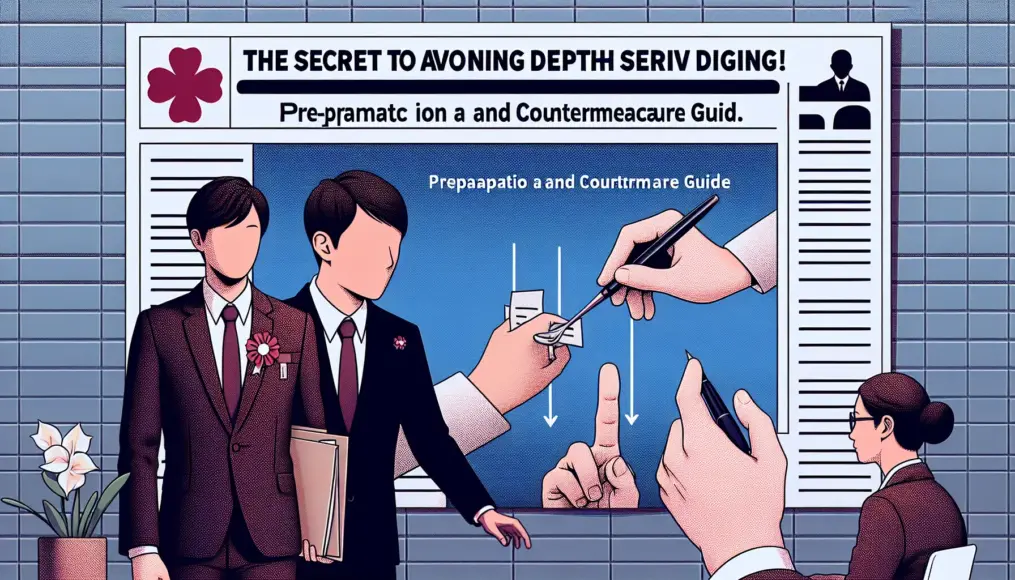Your self-introduction during an interview is a crucial moment that sets the tone for the rest of your conversation. For college students, how you present yourself can significantly impact your future career prospects.
In this article, we’ll explore effective self-introduction examples tailored for college students, while sharing tips and strategies for success. Let’s dive into how to craft a compelling self-introduction using practical examples.
- Understand the importance of your self-introduction in an interview
- Learn specific tips for a successful self-introduction
- Discover practical self-introduction examples designed for college students
When preparing for an interview, keep in mind that this is your chance to make a strong first impression. A well-thought-out self-introduction can capture the attention of your interviewer and set you apart from other candidates.
So, how do you create an impactful self-introduction? Here are some key points to consider:
1. Start with the Basics: Begin by stating your name and your major or current status. This gives the interviewer context about who you are.
2. Highlight Your Skills and Experiences: Mention any relevant experiences, internships, or projects that showcase your skills. This is your opportunity to demonstrate what you bring to the table.
3. Connect with the Job: Tailor your introduction to align with the position you’re applying for. Explain why you’re interested in the role and how it fits into your career goals.
4. Keep It Concise: Aim for a brief introduction that lasts about 30 seconds to a minute. This will keep the interviewer engaged and allow for a smoother transition into the rest of the interview.
5. Practice, Practice, Practice: Rehearse your introduction multiple times until you feel confident. This will help you deliver it more naturally during the actual interview.
By focusing on these elements, you can create a self-introduction that not only showcases your strengths but also resonates with your interviewer. Let’s take a look at some practical examples to inspire your own introduction.
Whether you’re a freshman or a senior, refining your self-introduction can be a game-changer in your interview process. Embrace the opportunity to shine and make a lasting impression!
The Importance of Self-Introduction in Interviews
Self-introductions during interviews play a crucial role in shaping the impression you leave on your interviewer. For college students, it’s especially essential to effectively present yourself in a short amount of time. A well-executed self-introduction can significantly enhance the impression you make.
How Self-Introductions Shape Impressions
A self-introduction is your first opportunity to convey who you are. Interviewers glean a lot from your words and demeanor, making it vital to express yourself clearly during this time. For college students, incorporating academic achievements and relevant experiences into your introduction is particularly important.
A successful self-introduction can set a positive tone for the entire interview. Conversely, a poor introduction might affect the subsequent questions and interactions. This is why it’s essential to prepare your self-introduction thoroughly.
- Self-introduction is a key component in creating a first impression.
- It’s your chance to convey your enthusiasm and abilities to the interviewer.
- A strong self-introduction can enhance the overall flow of the interview.
The Benefits of a Strong Self-Introduction
The impact of a self-introduction goes beyond just making a good impression. By understanding yourself and clearly defining your strengths, you contribute to your personal growth. For college students, it’s crucial to reaffirm your strengths and values through this process.
Moreover, a well-crafted self-introduction facilitates smoother communication with the interviewer. A successful introduction can help create a relaxed atmosphere, fostering trust between you and the interviewer. Recognizing these benefits and preparing your self-introduction is key to achieving interview success for college students.
- Use your self-introduction to gain self-awareness and clarify your strengths.
- Smooth out communication with the interviewer.
- Build trust and create a relaxed atmosphere.
Key Points for a Successful Self-Introduction
To make your self-introduction successful, it’s essential to keep a few key points in mind. This is especially true for college students who need to effectively highlight their academic background and experiences. Let’s explore some strategies to express yourself well, incorporating specific examples.
Enhancing Your Self-Presentation with Specific Examples
When introducing yourself, weaving in specific stories can leave a lasting impression. For instance, discussing your experiences from part-time jobs or school projects can showcase your skills and enthusiasm. Concrete examples are easier for listeners to understand and can foster a sense of connection.
Additionally, it’s crucial to clearly define your strengths during your self-presentation. By emphasizing what you excel at and the areas you’re passionate about, you can convey your value to interviewers. Sharing specific anecdotes will make your self-introduction more compelling and persuasive.
- Specific stories leave a lasting impression
- Leverage experiences from part-time jobs and projects
- Clearly defining your strengths is key
Finding the Right Balance in Length and Content
The length of your self-introduction is very important in an interview setting. If it’s too long, you risk losing the interviewer’s interest. Conversely, if it’s too short, you may not convey enough about yourself. Aim for a self-introduction that lasts about one to two minutes.
Balancing content is equally vital. Instead of merely discussing your academic achievements and experiences, make sure to share insights into your personality and values, which can create a deeper impression. For instance, including your hobbies and interests can make your introduction feel more relatable and engaging. A well-balanced self-introduction is the key to making a positive impression.
- Aim for a self-introduction of one to two minutes
- Be mindful not to make it too long or too short
- It’s important to convey not just your achievements but also your personality
Recommended Self-Introduction Examples for College Students
Self-introductions are a crucial opportunity to showcase yourself during interviews. For college students, it’s especially important to highlight specific examples from your academic background and experiences. In this article, we’ll explore examples of self-introductions that leverage your studies and part-time work to help you master effective self-promotion.
Leveraging Your Academic Background in Introductions
When introducing yourself as a college student, it’s essential to emphasize your academic achievements and what you are studying. For instance, discussing your major or classes you’re particularly passionate about can help demonstrate your expertise. You might say something like, “I’m majoring in economics, with a strong interest in macroeconomics. Recently, I’ve been working on a project analyzing economic trends in one of my classes.”
By providing specific details about your academic pursuits, you can effectively convey your knowledge and enthusiasm to the interviewer. Additionally, incorporating the skills and experiences you’ve gained through your studies can leave a more favorable impression.
- Emphasize your academic achievements and major
- Mention specific classes or projects
- Communicate your knowledge and passion
Highlighting Your Part-Time Work Experience
Part-time work experience can be a powerful element in your self-introduction. It’s important to illustrate the specific skills you’ve developed and how you’ve demonstrated teamwork. For example, you could say, “Through my part-time job at a fast-food restaurant, I’ve gained valuable customer service skills and improved my time management abilities. I focused on meeting customer needs while collaborating with my team to efficiently complete our tasks.”
Discussing your part-time work allows you to showcase your initiative and communication skills in a real-world setting. This can help create a strong impression on the interviewer regarding your practical abilities.
- Share specific experiences from your part-time job
- Highlight the skills and achievements you’ve gained
- Showcase your initiative and communication skills in the workplace
How to Practice Your Self-Introduction for Interviews
To ace your self-introduction during an interview, thorough practice is essential. This is especially important for college students, who need to develop their ability to express themselves effectively within a limited time frame. In this article, we’ll explore effective practice methods, including mock interviews and utilizing feedback.
Practice with Mock Interviews
Mock interviews provide a valuable opportunity to experience the atmosphere of a real interview. Ask friends or family members to play the role of the interviewer and practice your self-introduction with them. It’s crucial to approach this exercise with the same level of seriousness and nervousness you would feel in an actual interview.
By conducting mock interviews, you can refine the flow and wording of your self-introduction. Pay attention to your tone of voice and body posture during practice, which will help build your confidence as you prepare for the real thing. With repeated practice, you’ll find yourself expressing your thoughts more naturally.
- Practice with a sense of urgency during mock interviews
- Confirm the flow of your self-introduction
- Prepare yourself to approach the interview with confidence
Utilize Feedback
After completing a mock interview, it’s essential to seek feedback. Hearing opinions from friends or family can help you identify areas for improvement that you might not have noticed on your own. For instance, you might receive advice like, “It would be better to include more specific examples.”
Using the feedback you receive, practice your self-introduction again to refine your content. Incorporating a third-party perspective allows you to create a more engaging introduction. This will ultimately enhance your overall preparation for the interview.
- Identify areas for improvement through feedback
- Re-practice based on specific advice
- Create a more compelling self-introduction
Conclusion
Mastering self-introductions in interviews is an essential skill for college students. To effectively showcase yourself, preparation and practice are key. By utilizing specific examples and engaging in practical exercises, you can approach interviews with confidence.
- Self-introductions play a crucial role in creating a strong first impression.
- Incorporating specific anecdotes can enhance your overall impact.
- Practicing through mock interviews and receiving feedback is incredibly beneficial.
Wishing you success in your interviews! We’d love to hear about your experiences and thoughts in the comments.



Comment